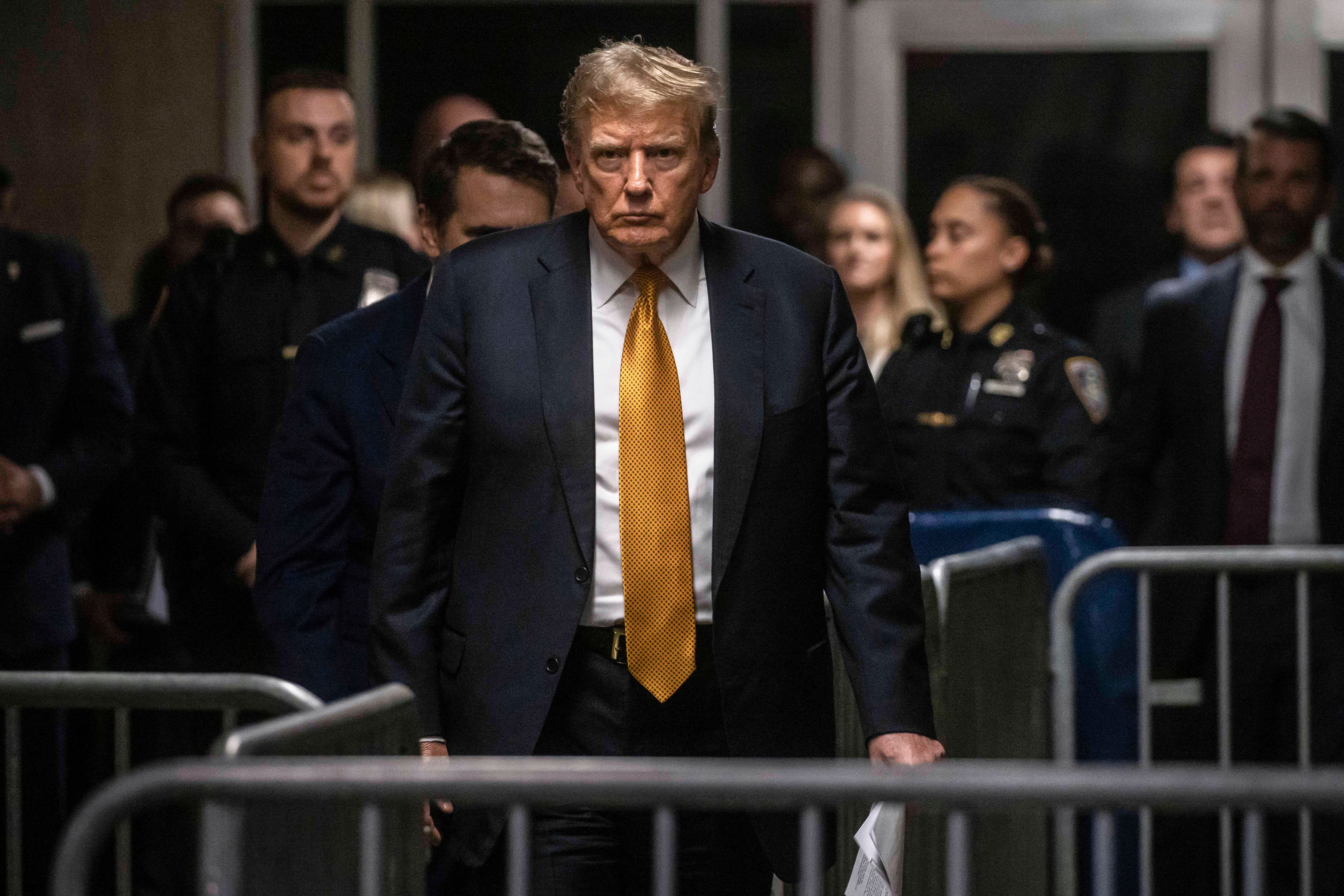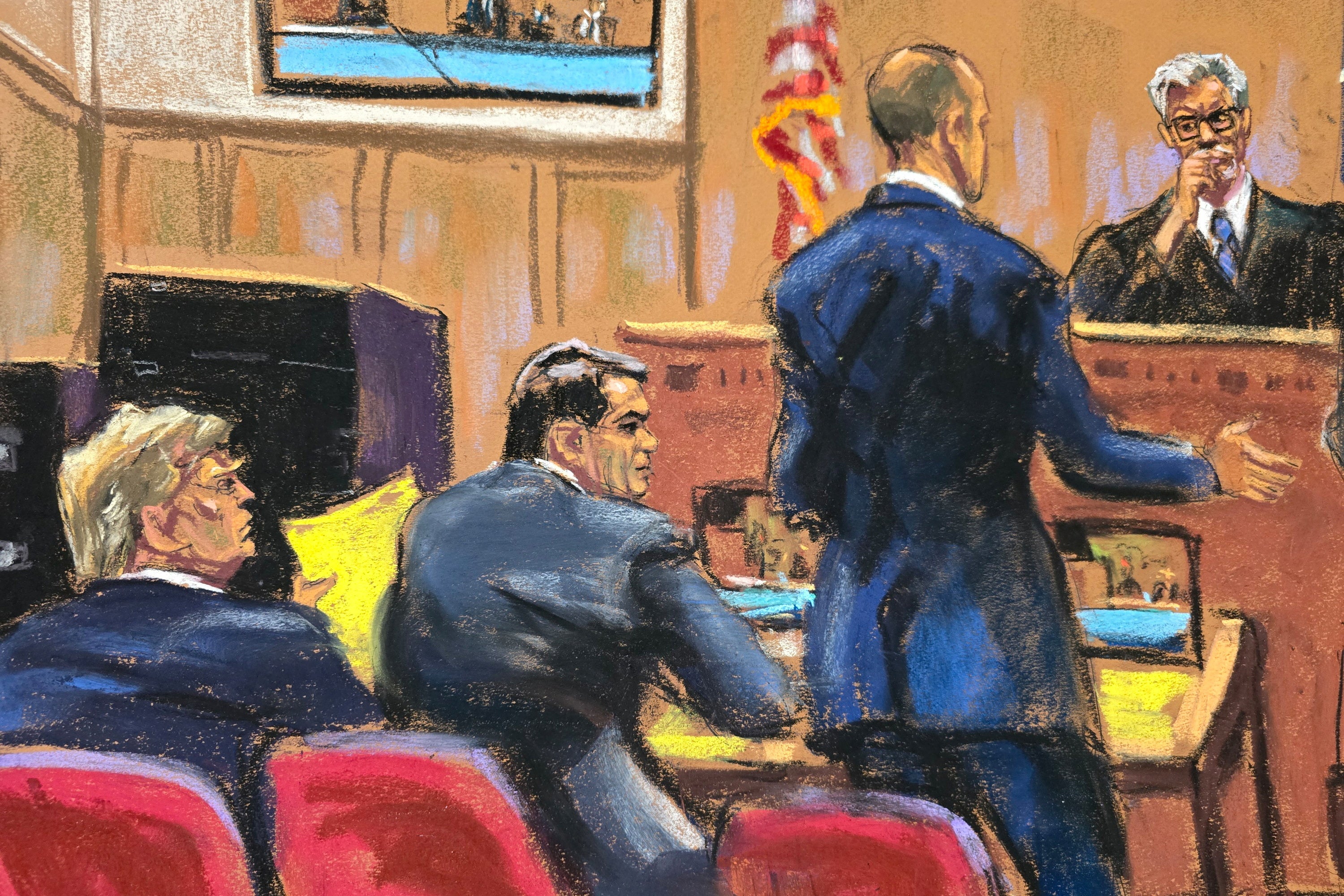A verdict in Donald Trump’s hush money trial could arrive as soon as Wednesday.
Closing arguments in the former president’s criminal trial in Manhattan begin on Tuesday, and Manhattan prosecutors and Mr Trump’s defense team are expected to spend the day delivering their final statements to the jury before deliberations begin.
Then, after 16 days of testimony from 22 witnesses spread out over five weeks, a group of 12 jurors in Manhattan will determine whether Mr Trump is guilty of falsifying business records as part of a conspiracy to corruptly influence the 2016 presidential election.
Jurors will review dozens of documents, including emails, text messages, encrypted chats and the allegedly false documents at the center of the case.
Those include company ledger entries, invoices and checks that form the paper trail of Mr Trump’s reimbursement payments to his former attorney Michael Cohen, who paid $130,000 to adult film star Stormy Daniels weeks before Election Day so she wouldn’t go public with a story about having sex with Mr Trump.
On Sunday, near the end of his six-day break between trial dates, the former president once again lashed out at the judge and the chief prosecutor leading the case against him.
What happens during closing arguments?
Lawyers for the Manhattan District Attorney’s Office won’t be presenting new evidence when they wrap up their case on Tuesday, but it’s their one last shot to drive home their narrative and remind jurors what the case is all about.
In his opening statement last month, assistant district attorney Matthew Colangelo argued that Mr Trump “orchestrated a criminal scheme to corrupt the 2016 presidential election” and then “covered up that criminal conspiracy by lying in his business records, over and over and over again.”

Mr Trump is accused of falsifying business records by labeling a series of payments in 2017 to his then-attorney Michael Cohen as a “retainer” and “legal expense”. But prosecutors argue that Mr Trump – who was the president at the time – was actually reimbursing his “fixer” for a hush money payment to Ms Daniels.
Prosecutors must prove, beyond a reasonable doubt, that Mr Trump not only falsified business records, but did so with the intent to commit or cover up another crime.
Prosecutors will likely walk jurors through that scheme one last time, and explain how that central fraud violated state and federal campaign finance law, tax law, and a state law against conspiracy to corrupt an election by “unlawful means.”
Defense attorneys do not have to prove anything or convince jurors of Mr Trump’s innocence, but they will need to convince at least one juror that prosecutors have not proved his guilt beyond a reasonable doubt.
Mr Trump’s lawyers have argued that Cohen was merely paid for his work as the former president’s then-personal attorney, and that the hush money scheme – which itself was not illegal – was only to prevent embarrassing news of his affairs from getting to Mr Trump’s family, not in an attempt to hide them from voters.
When does the jury deliberate?
Before jurors are sent out of the courtroom to deliberate, Justice Juan Merchan will give them instructions – a framework for understanding the law surrounding the charges and what they can and cannot take into account as they determine his guilt or innocence.

Prosecutors and defense attorneys debated the contours of those instructions and proposed their own during a two-hour hearing last week.
Judge Merchan is expected to deliver those instructions on Wednesday morning before sending jurors off to deliberate in an undisclosed room in the courthouse.
Jurors will be able to pass notes to the judge for things like clarifying legal language or reviewing testimony.
But how long they will take to deliberate is anyone’s guess. The 12 jurors must unanimously agree on a guilty or not guilty verdict.
If they can’t reach a consensus after several days of deliberations, the judge will likely ask them to keep trying. If they’re still deadlocked, he could declare a mistrial.

